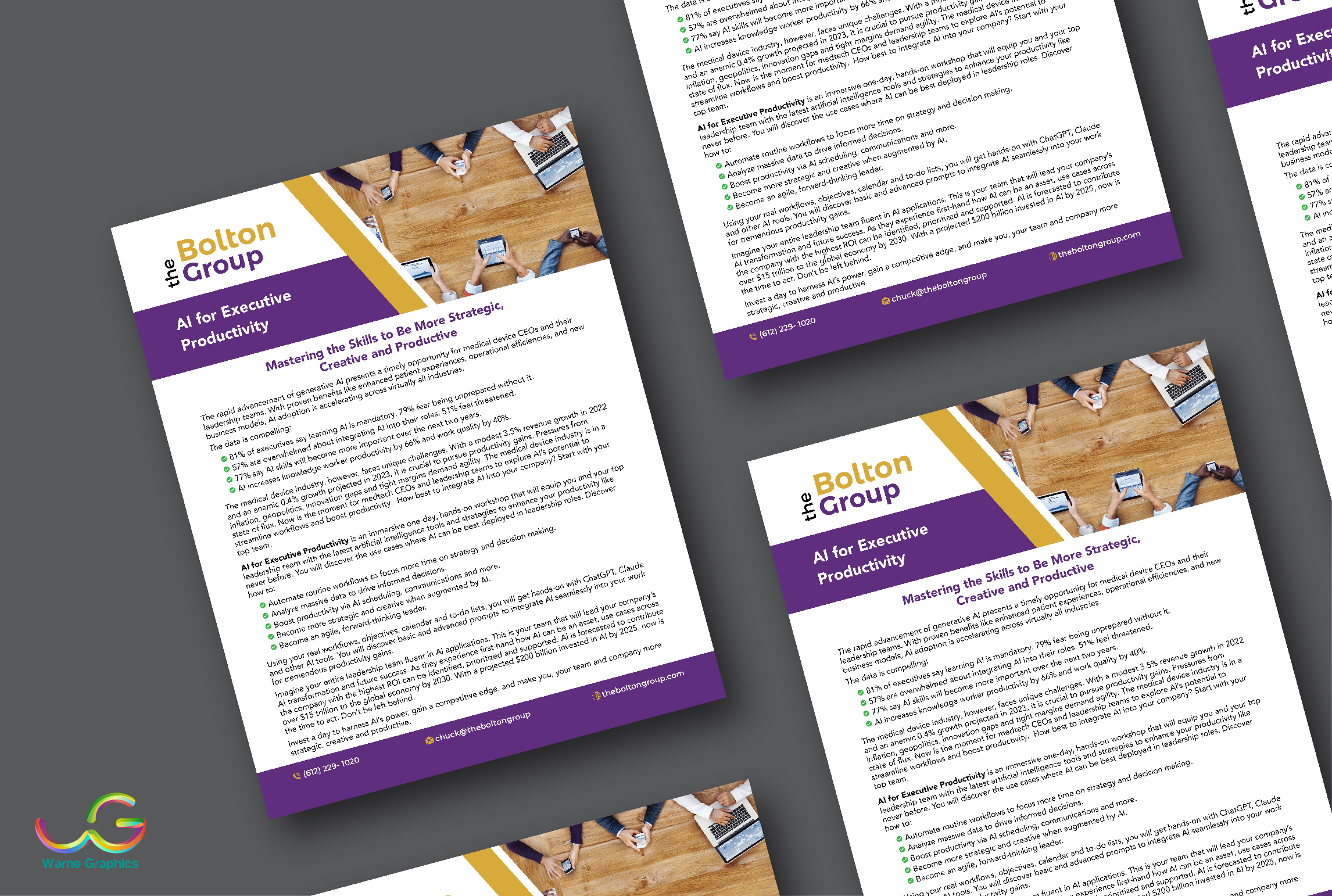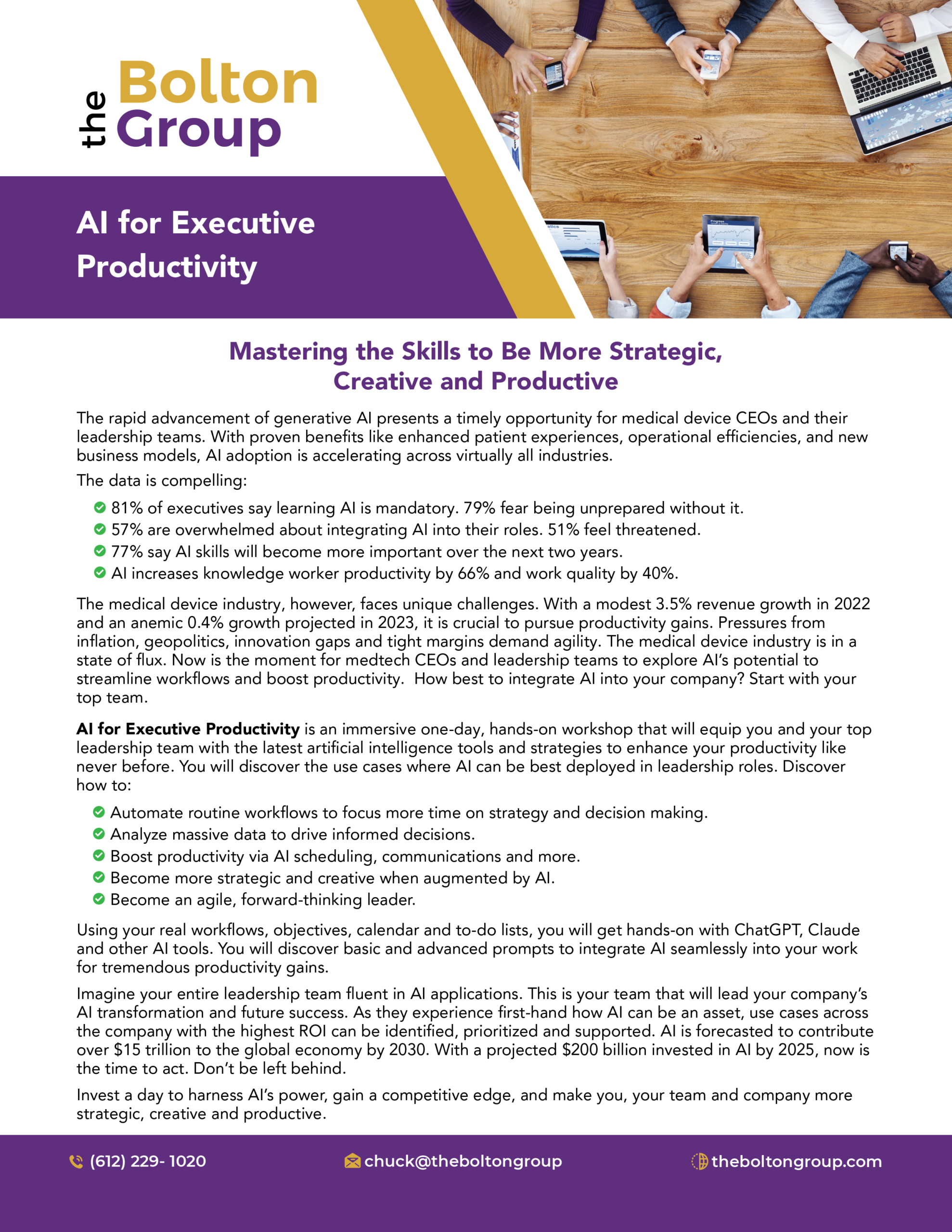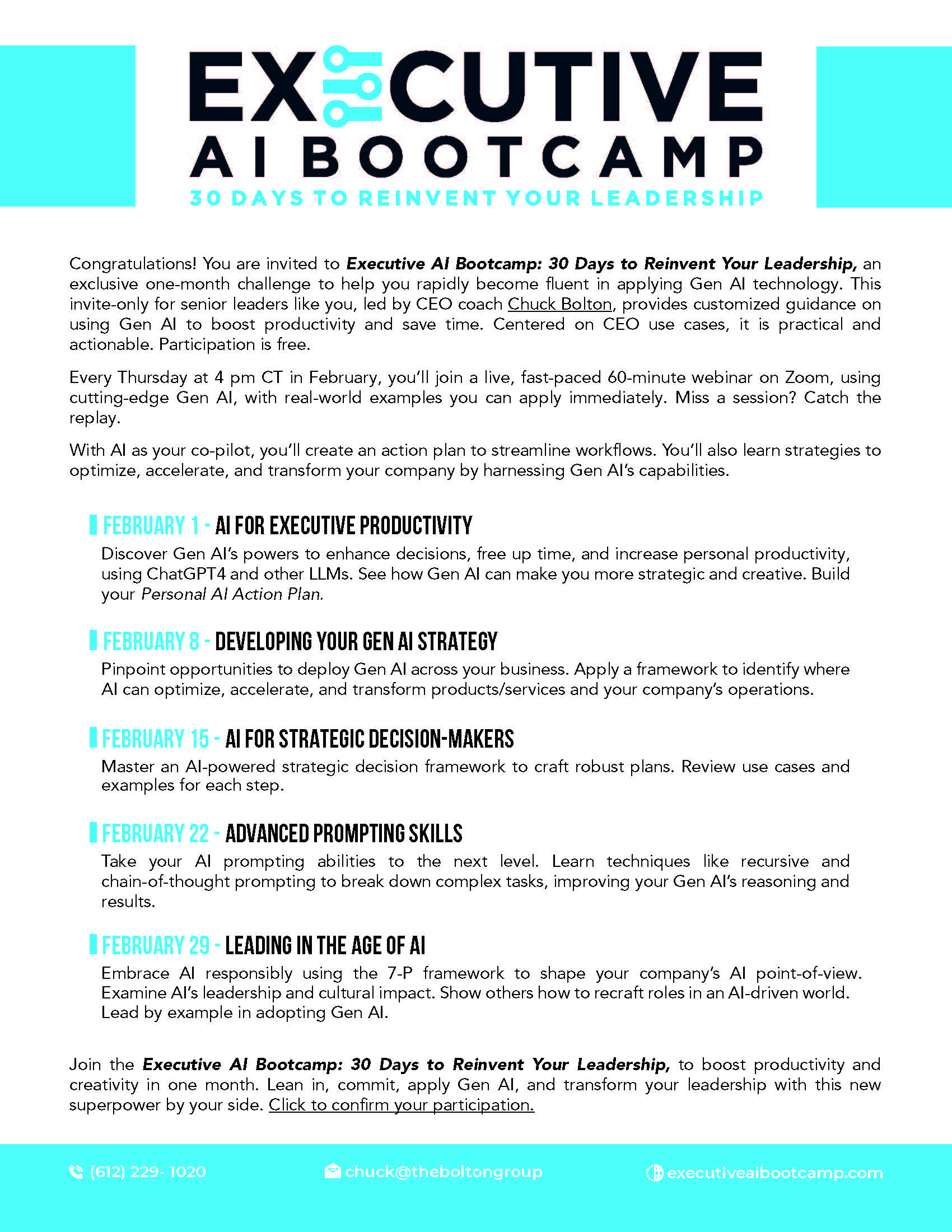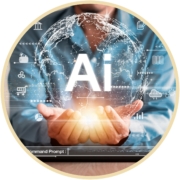To Thrive in An AI-World, Leaders Must Master New Skills to Be More Productive, Creative and Strategic
It’s been one year today since ChatGPT launched and brought generative AI into the mainstream. In just five days, over one million people tried ChatGPT – it took Twitter two years to hit that milestone. And in 2023, terms like “artificial intelligence,” “generative AI,” and “AI” are ubiquitous in business publications.
ChatGPT and other large language models (LLMs) allow us to write a prompt and see GenAI’s superpowers at work within seconds. It excels at generating and synthetizing text, video, audio, images and code. It’s also exceptional at brainstorming and generating ideas, completing tasks and interacting. However, it’s not perfect. It’s quirky and sometimes provides wrong answers.

Is this GenAI hype or the real deal? The jury is still out, but the quality of the LLMs is improving rapidly. CEOs are jumping on board – mentions of AI on S&P 500 earnings calls have tripled compared to last year according to Bloomberg. And CEOs are putting their money where their mouths are. The investments and projections are staggering:
- AI investments could approach $200 billion globally by 2025 (Goldman Sachs).
- AI could contribute over $15 trillion to the global economy by 2030 (PwC).
- AI productivity gains could reach $4.4 trillion (McKinsey).
In the medtech and healthtech sectors, moving to the “AI class” is vital. 2023 has been challenging – EY projects anemic 0.4% revenue growth versus the modest 3.5% growth last year. Slow growth and shrinking margins make productivity gains imperative. Meanwhile, AI in healthcare is projected to have an 85% CAGR through 2027 – faster than any other industry – and becoming a $22 billion market (BCG).
While medtech has been slow to adopt AI, firms that embrace it can optimize productivity, accelerate revenue and transform their businesses with new innovative AI-augmented products and services.

Productivity starts at home. An HBS/BCG study showed AI boosts knowledge worker productivity 66% on certain tasks. The productivity gains apply to executives, too. Yet, in my discussions with CEOs and senior leaders, most executives admit they don’t use AI in their daily work. They know “AI” as a term but haven’t realized its potential. That is a risky position. While AI may not take your job, someone who knows and uses AI soon will. When I ask these leaders if they would like to learn how ChatGPT, Claude and other AI-based tools can save them time, make them more creative and improve decisions, I get an overwhelming “Yes!”
Yesterday, I gave a CEO client a ninety-minute abbreviated version of the AI for Executive Productivity workshop. First, we identified the work he does that requires both brain and brawn. His list of “use cases” included:
- Preparing the board deck and prepping for the board meeting.
- Preparing for important meetings with key customers and investors. Gaining updated news about their companies, thinking of ideas to build rapport, questions to ask, questions to anticipate.
- Writing the monthly letter to all employees
- Preparing, writing and sending emails
- Analyzing the monthly financial reports
- Analyzing and summarizing industry financial reports such as proxy statements, annual reports, S-1s and 10Ks.
- Reading and summarizing analyst and industry specific reports.
- Preparing for sales calls.
- Preparing for and rehearsing difficult conversations.
- Writing performance reviews.
One-by-one, we took each of his use cases and he discovered first-hand how gen AI can help with a first draft or complete each of these tasks as an assistant, a strategist or a creator. In ninety minutes, we just skimmed the surface, but he was amazed and sees the potential. Hours and hours of drudge work will be saved each month. Imagine if you and your team was AI-fluent and applied it daily. What would that be worth?
The takeaway is clear: AI is here to stay and rapidly improving. Leaders who don’t skill up on AI’s potential will struggle to remain competitive and become obsolete. Medtech firms that fail to adopt it will be left behind. Make this your personal strategic imperative. Make AI your teammate to augment your daily work routine. The time to start is now – because an AI-powered future is closer than it appears!









